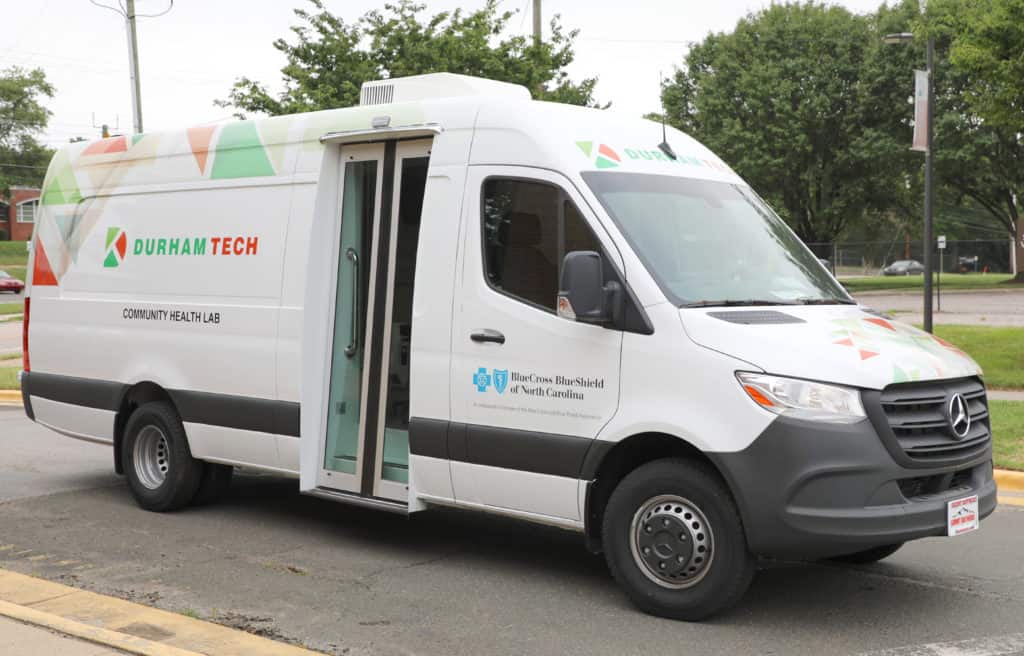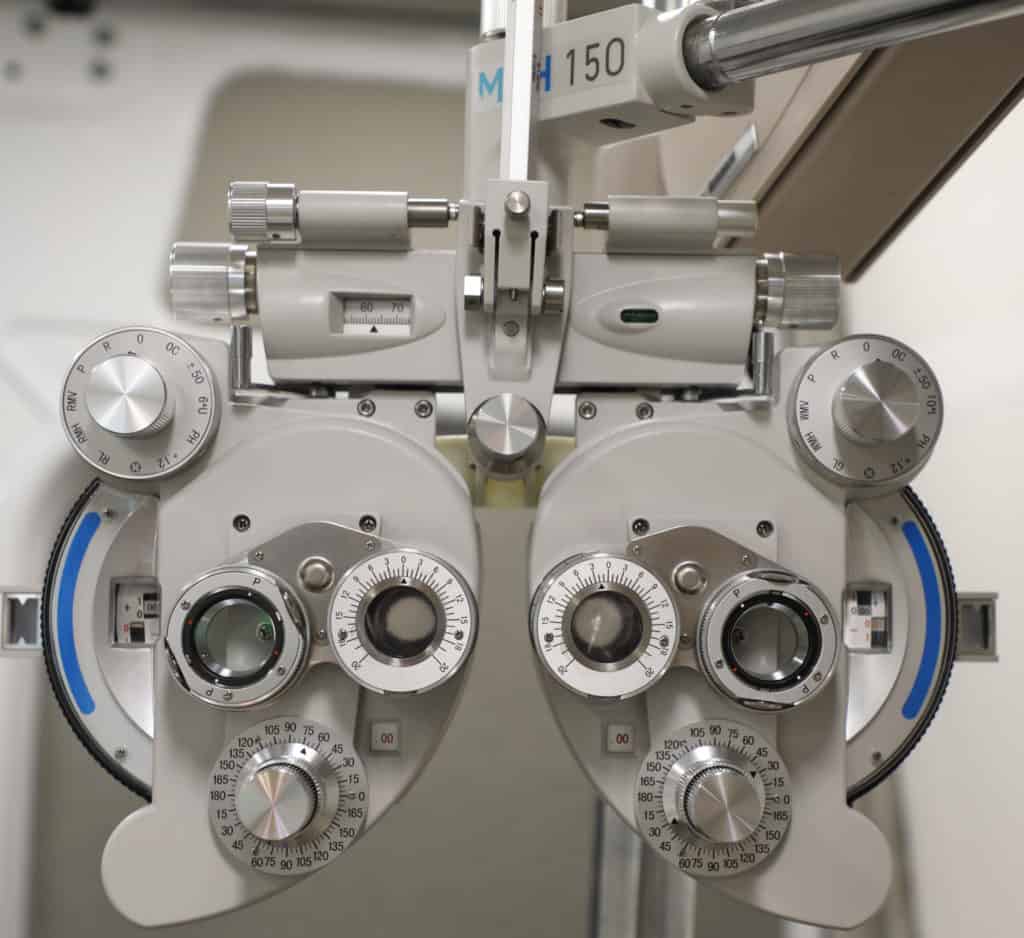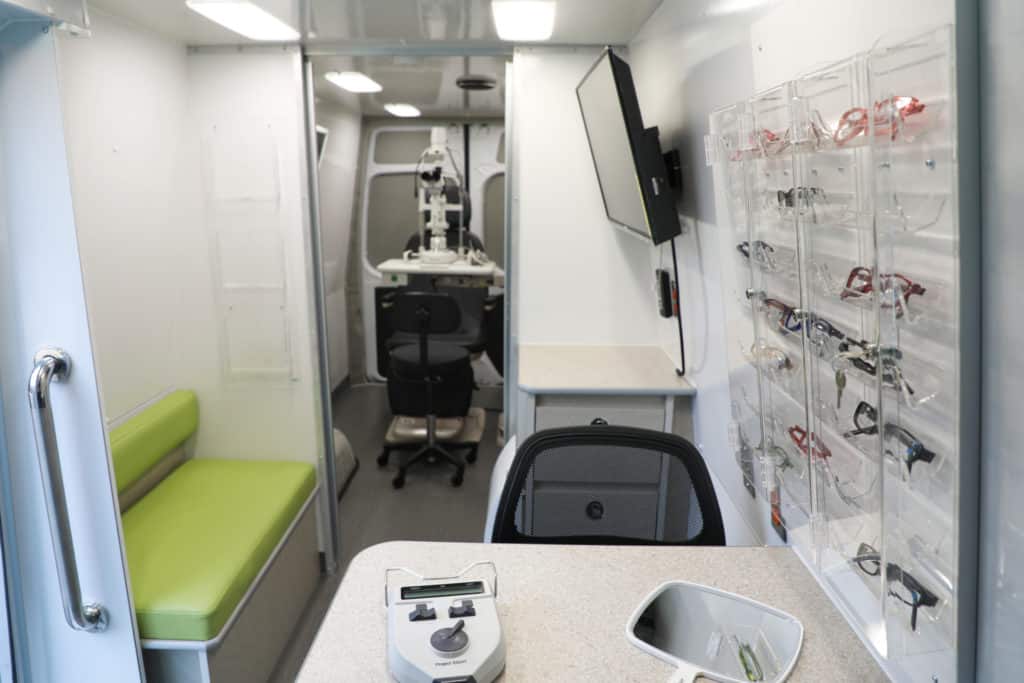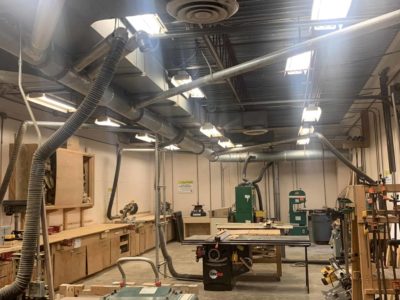North Carolina has seen a variety of innovations when it comes to services going mobile. From hundreds of food trucks to mobile libraries, new projects on wheels are surfacing every year.
Thanks to a $1 million grant from Blue Cross and Blue Shield of North Carolina, Durham Technical Community College (DTCC) is bringing a whole new set of services to the community with its mobile health lab. The gift from Blue Cross NC is the largest in the college’s history.

The seed for the mobile health lab was planted long before the grant from Blue Cross NC. Back in 2017, Durham Tech received $1,200 from the Durham Tech Foundation to put toward its beginning stages.
“We took that 1,200 dollars and we were able to help out 144 students with glasses and also put them in connection with doctors that would perform the free eye exams that they needed,” said Melissa Ockert, dean of health and wellness at Durham Tech.
According to a press release by the college, the mobile lab will provide:
- Fittings and free glasses for children
- Free dental pre-screenings and education
- Health fairs at public elementary schools, featuring basic vital sign, cholesterol, and glucose checks, and health and nutrition education to combat childhood obesity

Access to health care is an important issue to residents of Durham. In 2017, 70% of residents surveyed identified access to health care as a top issue in their city, according to research conducted by the Durham Department of Public Health. The research also found that 13% of Durham residents were uninsured in 2017. Of those uninsured, about 12% were children.
The mobile health lab will also double as a classroom for students at DTCC. Students will be able to practice in the field what they’ve learned in the classroom, serving the Durham community in new ways.

As demands for COVID-19 testing increase, DTCC is trying to figure out how the mobile health lab can support existing efforts for testing in the community. For now, the school will continue developing this project that had its first iteration back in 2017.
“I remember our first family that we helped. The student, I think, was 14 and they had been without glasses for two years with an extremely high prescription, so high they couldn’t even see the hand in front of their face. And you can’t do schoolwork that way, and they were having behavioral issues. They were failing and very withdrawn and barely spoke to me when I fit them,” Janet Alspaugh, opticianry program director at Durham Tech said. “Two years later, they are now a straight-A student, on the football team, and just so full of life. And we were able to help the whole family. They all had pretty high prescriptions, but we were able to also help the parents, and they’ve been able to secure jobs now and really move forward in life.”
![]() Sign up for Awake58, our newsletter on all things community college.
Sign up for Awake58, our newsletter on all things community college.
Recommended reading



